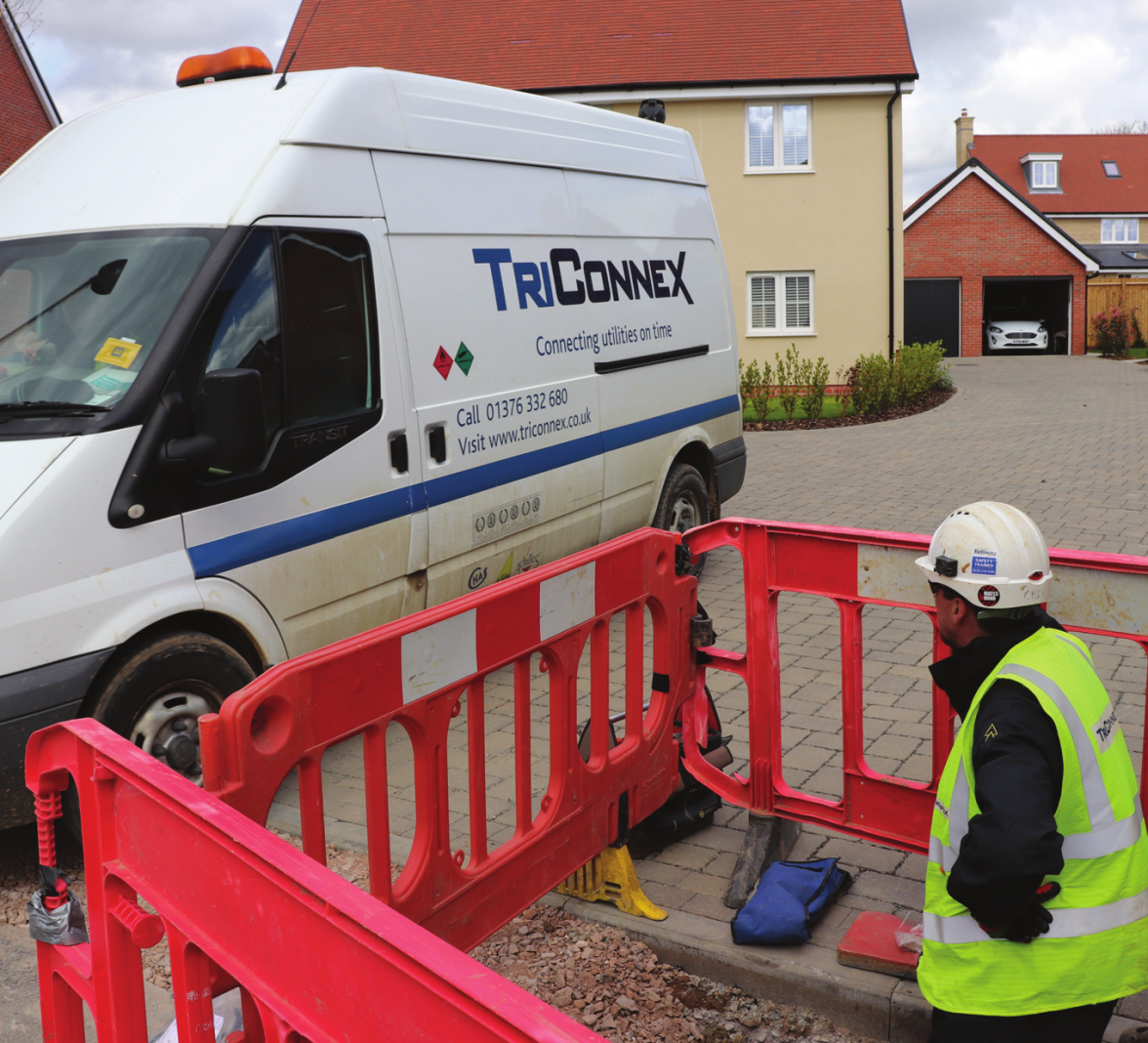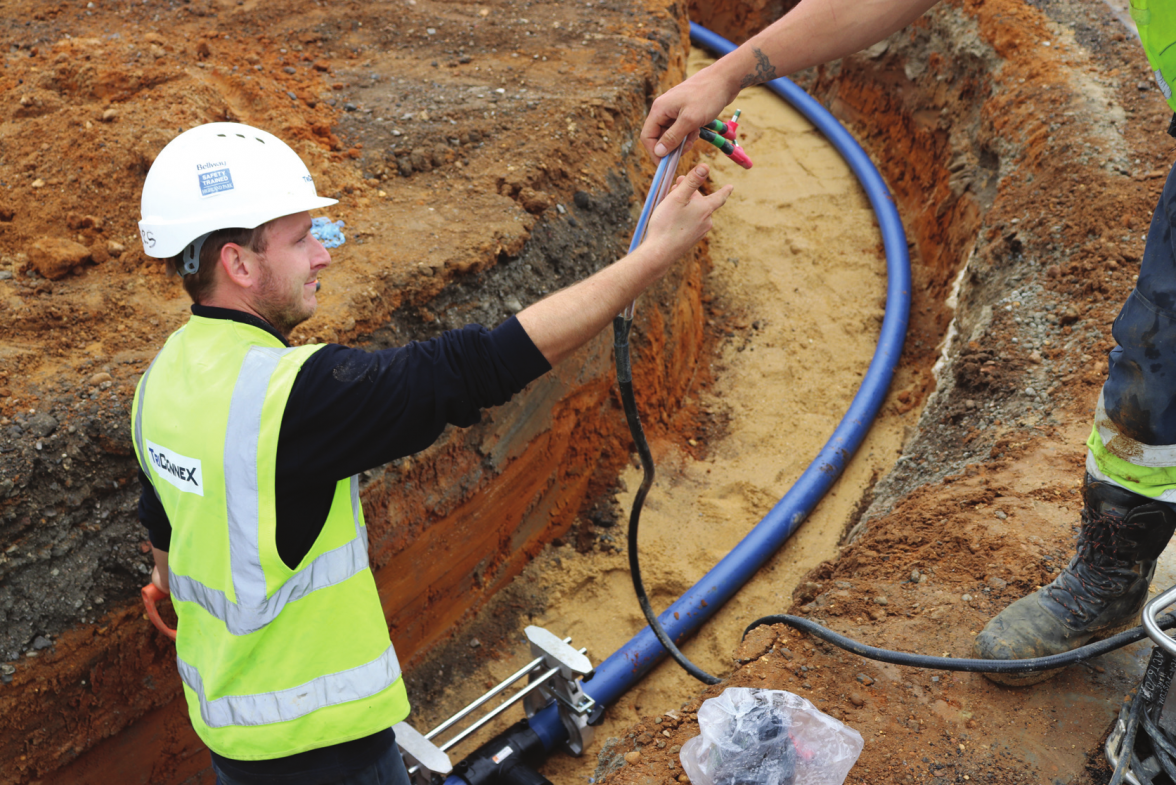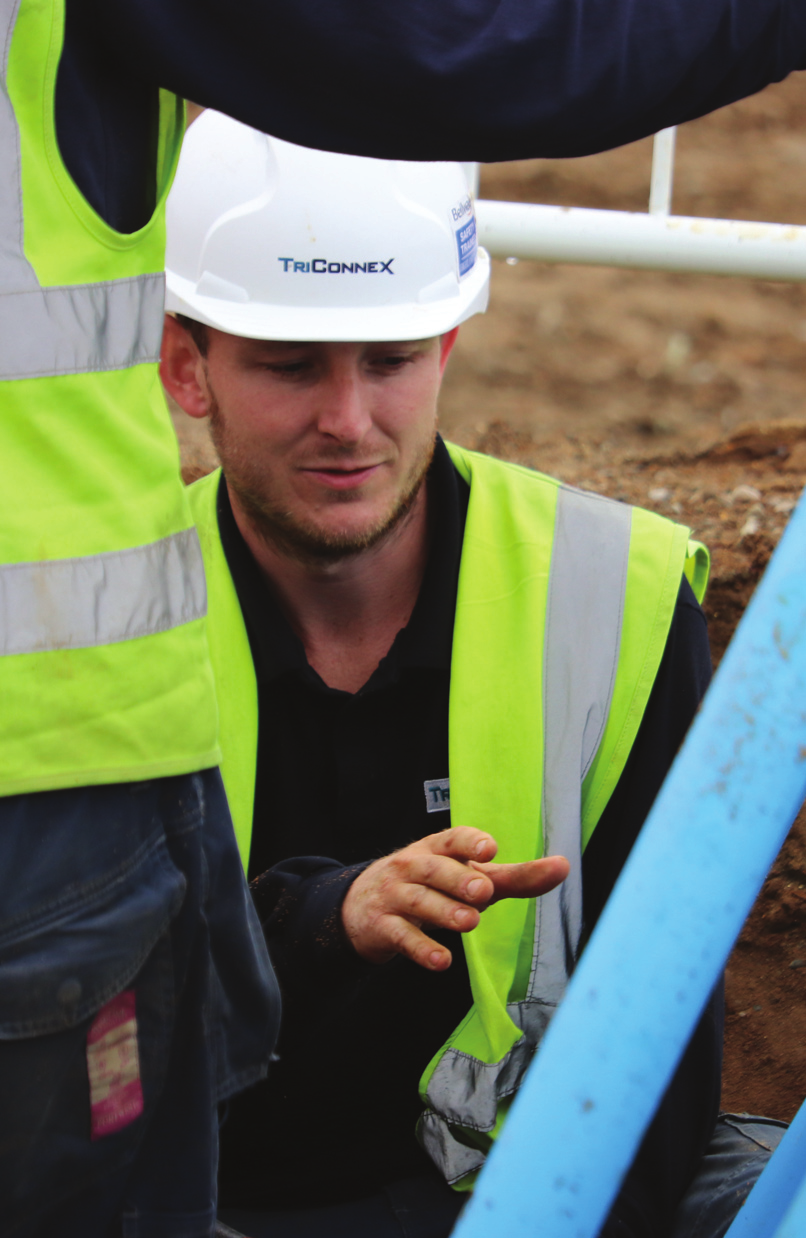
Smart grids and smart homes will play a crucial role in our low-carbon future, which is why multiutilities business TriConnex is building networks that are ready for homeowners to tap into - when the time is right for them.
"We're leaving houses with full fibre connections and a live grid connection that can take batteries and solar and whatever other renewable technologies emerge in the future," explains business development director Chris Doré.
"The technology is there now for early adopters but if the next person who buys the house doesn't want to engage in that, they don't have to. They can go back to a traditional standard electricity/electrical connection with a fibre connection.
"Those two things - an electricity supply and the ability to manage software through fibre has unbelievable potential and it's elective, in that whatever is installed by future owners, the house will always have a rock-solid connection to the network.
"We're building a cohort of new homeowners who can choose to buy into the sustainable, smart element around energy - their house is ready for them to do that whenever they're ready."
The concept of building the smart home tech element in from the start is flawed, Doré believes, as feedback from homebuyers is that they don't want an overly technical house.
“No one wants to have to switch their house off and switch it back on again,” he quips. “The perfect combination is where homeowners own an EV, solar panels and batteries integrated with their grid connection. That’s why we’re going down the path of putting people in a position where, when that tech reaches critical mass and potentially cross-neighbourhood level, they’ll be ready.”

Homeowners are already being rewarded to avoid using electricity at peak times. For example, last month Octopus Energy announced it is adding domestic solar photovoltaic (PV) to its home energy tech installation portfolio. Customers will be able to access two Octopus export tariffs and those combining solar panels, solar battery and its agile ongoing tariff could save up to 90% on their electricity bills. The roll-out is already underway, with Octopus aiming to hit 5,000 installations this year.
"The grid is decarbonising at a rate of knots and we're heading towards a virtually zero carbon electricity grid. We just need to wait for the grid to go zero carbon and then anything to do with electricity is sustainable and renewable," Doré points out.
Essex-based TriConnex, which specialise in designing, installing and connecting energy, water, fibre networks and EV charging infrastructure on residential new build developments, has been working towards sustainability across all of its services.
As part of that, it’s been perfecting the art of going from nothing to a complete network in the most efficient manner. This includes using the smallest possible cables, making sure there’s no doubling up on where it’s not necessary and that nothing needs rework. ‘Make sure we build it once and build it as small and as efficiently as we can’ is the team’s mantra. There’s also an ongoing drive to make sure no material is wasted during design, implementation, execution and long-term maintenance, as well as avoiding stockpiles of materials onsite that could end up going to waste.


"Leave something that lasts, that doesn't need to be touched and build as efficiently as possible," Doré sums up.
He praises TriConnex's operations director Mick Hine as "fantastic" at constantly pushing the team in a bid to improve all-round sustainability performance.
"When we turn up onsite, we do the most work we possibly can," Doré says. "If it's a network that we've calculated we should be able to build in 40 visits and we achieve that, great; but if it takes 140 visits, that's 100 more trips to site, 100 more bits of kit, cap ends or joints.
"And by putting in a certain length of cable or water pipe, it makes the next few houses' worth of connections that much simpler. A bit more effort now pays dividends later and our clients have really bought into that concept."

Another area where TriConnex is working closely to help customers navigate the maze of housebuilding rules and regulations is water - a challenge that the government has poured directly into the laps of developers. Now that the growing need for neutrality on water consumption means a development can consume no more water than before it existed, some developer customers have asked whether it's feasible to create their own borehole, extract and treat water onsite.
"The problem with this is it's pushing developers into becoming a water supplier and possibly a waste authority," Doré says.
He concedes a couple of sites have done it but points out that when it comes to 300,000 houses a year, the stark reality is it's not practical.
"No developer in the business of building houses has got the wherewithal, cash, risk appetite or capability to suddenly become a water supplier forever for a site," he points out.
He questions whether the average residential developer director would feel confident sitting in their office “while whatever pump they’re running onsite is sucking something out of the ground that people are consuming? And what happens if there's a drought, or the borehole runs dry?"

Then there are the extra costs, difficulties and delays associated with buying nutrient neutrality credits to unlock sites, estimated to be holding up the construction of thousands of homes. Coming on top of chronic shortages of labour and supply chain woes - it's what Doré jokingly refers to as 'Challenge Anneka' level.
"Our developers tell us about the difficulties of sourcing materials that are in short supply, even putting workers into vans and sending them off to go and track down crucial products."
This, as he adds, comes against a backdrop of 'structural tiredness' in the housebuilding industry. After years of dealing with the Covid/Brexit impact on materials and labour, the Kwasi Kwarteng/Liz Truss episode was unsettling for investors. And, more recently, there's been volatility around mortgage costs and availability, the need to 'build beautiful', biodiversity net gain and amenity neutrality to contend with.
"Any one of these things happening to the housing market would be bad enough but add them all up and it's all the normal stuff developers need to deal with on steroids," Doré says. "And when you combine that with trying to hit targets and generate profits, it's no surprise that everyone's wrung-out."


Despite these volatile conditions, TriConnex has performed strongly. It generated revenue of £56m for the year ended 30 September 2022, up 10% on the year before. Operating profit was £5.6m, with a profit margin of 10%, and as of the end of September last year, the TriConnex order book was a healthy £197m.
TriConnex's parent company, Nexus Group, has conditionally agreed to sell TriConnex and sister company eSmart Networks to private investment firm FitzWalter Capital for £78m. If successful, the deal will bring significant capital investment to further boost TriConnex's growth.
As for the industry as a whole, Doré points out that the lack of certainty around government policy, the revolving door of housing ministers and what he describes as "constant flip-flop politics" is actively holding back progress in sustainability and innovation.
As an example, he cites developers not knowing whether they will be taxed on onshore wind. "The uncertainty around this and other policies has stopped our customers when it comes to renewables."
"There is a direct correlation between stability and the ability to innovate around sustainability and we do not have stability. Anything we as an industry are gaining around our ability to deliver sustainability has to be applauded, because it's hard won." sh



